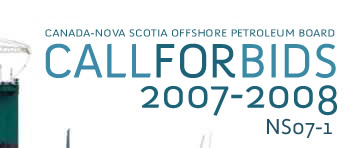
CANADA-NOVA SCOTIA OFFSHORE PETROLEUM BOARD


Reserve Estimates
Eagle has reservoir characteristics that are similar to the Ekofisk field in the Norwegian sector of the North Sea, as shown in the table below. Ekofisk is an offshore chalk reservoir that has produced commercially for many years. The Ekofisk field is located in water depths ranging from 70 – 75m (Eagle water depth approximately 50m). Ekofisk has been on production since 1971 and contains vast reserves of both oil and natural gas.
Field |
Age |
Primary Lithology |
Porosity (%) |
Matrix Permeability (mD) |
Eagle |
Late Cretaceous |
Chalk |
19 – 36 |
0.2 – 1.4 |
Ekofisk |
Late Cretaceous |
Chalk |
25 – 40 |
0.1 - 10 |
Due to the nature of chalk reservoirs, more elaborate production techniques are often required to enhance production. These production techniques can include acidizing, hydraulic fracturing and multiple fracture horizontal wells. The CNSOPB conducted a reservoir simulation of the Eagle reservoir and estimated that recovery factors of up to 60% are possible, if the field is developed using multiple fracture horizontal wells. The results of this reservoir simulation were used to guide the recovery factors used in the Eagle resource assessment. The CNSOPB conducted a probabilistic resource assessment of the Eagle field and the results are tabulated below.
Eagle - Original Gas in Place |
|||
P90 (E9M3) |
P50 (E9M3) |
P10 (E9M3) |
Mean (E9M3) |
25.3 |
35.4 |
47.3 |
36.0 |
P90 (Bcf) |
P50 (Bcf) |
P10 (Bcf) |
Mean (Bcf) |
892 |
1,250 |
1,670 |
1,270 |
Eagle - Recoverable Gas in Place |
|||
P90 (E9M3) |
P50 (E9M3) |
P10 (E9M3) |
Mean (E9M3) |
8.0 |
13.3 |
20.4 |
13.8 |
P90 (Bcf) |
P50 (Bcf) |
P10 (Bcf) |
Mean (Bcf) |
283 |
471 |
720 |
489 |